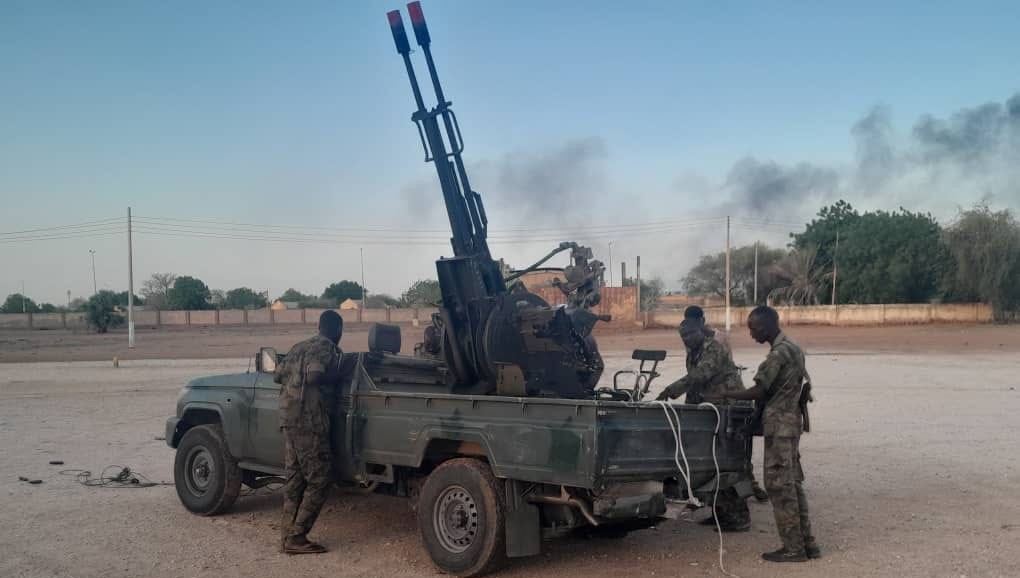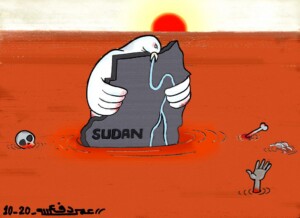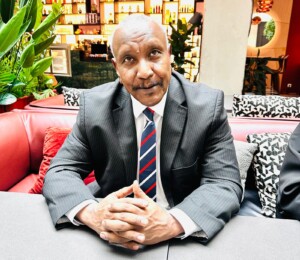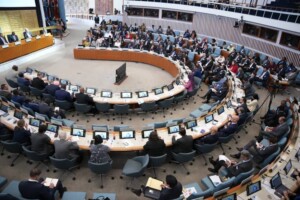Mixed reactions to new US sanctions in Sudan

Sudanese Armed Forces soldiers in Khartoum (File photo: SAF via its Facebook page)
Sudanese reactions remain sharply divided after the United States formally accused the government of using chemical weapons in its war with the Rapid Support Forces (RSF), triggering new sanctions and prompting mixed responses across the political and military landscape.
The US State Department announced sanctions on Sudan after determining the government violated the Chemical Weapons Convention, to which it is a party, citing alleged attacks by the Sudanese Armed Forces (SAF) in 2024. The measures, including export bans and credit restrictions, take effect in early June.
Reactions have split along political lines. RSF-aligned groups welcomed the move, while SAF supporters rejected it. Others called for an independent investigation and targeted sanctions on individuals instead of the state.
SPLM-N Accuses SAF
The Sudan People’s Liberation Movement-North (SPLM-N), led by Abdelaziz El Hilu, accused the SAF of deploying internationally banned chemical agents, most notably mustard gas and lewisite. an organoarsenic compound, against unarmed civilians.
The SPLM-N, which is part of Tasees (Sudan Founding Alliance), which formed following the controversial Nairobi Conference, and includes the RSF and allied factions, said in a statement, that photos and videos documented chemical clouds in Jebel Moya, Dinder, Karari, and East Nile.
It also referenced lab tests of samples containing arsenic, the active agent in lewisite, and eyewitness accounts from victims who suffered symptoms consistent with chemical exposure, including unexplained physical collapse.
The group cited confidential medical reports pointing to internal burns, lung corrosion, and slow death caused by internal asphyxiation.
Radio Dabanga has been unable to independently verify these claims.
Tasees
Tasees said the US decision confirmed what it had long been warning of, the SAF’s use of chemical weapons in the ongoing war. It called on regional and international actors to continue exposing such violations and to sanction those responsible.
The coalition also expressed readiness to cooperate with any initiative that would help end the war and apply pressure on army leaders who, it claimed, have rejected peace efforts.
RSF
The RSF called the US sanctions “a major step forward” in exposing what it termed “heinous crimes” committed against the Sudanese people.
In a statement, it reiterated earlier warnings about the SAF’s use of banned weapons, citing evidence of chemical agents used in cities such as Mellit and El Koma in North Darfur and in the capital Khartoum. The RSF said this was based on soil and water tests, burnt civilian remains, and testimony from independent investigative teams.
It warned of an environmental disaster due to chemical stockpiles stored in locations such as the Faculty of Education in Omdurman and other sites allegedly linked to the SAF and the El Baraa Brigades.
The group claimed that chemical weapons had been widely used in North and South Darfur, Khartoum, and El Gezira, affecting densely populated civilian areas, including the vicinity of the Republican Palace.
The RSF urged the international community to immediately launch a transparent and independent investigation and to bring those responsible to justice.
Calls for Investigation
Sumoud led by former Prime Minister Abdalla Hamdok, called for an independent international committee to investigate all crimes and violations committed during the war, including allegations of chemical weapons use by the army.
The leader of the Sudan People’s Liberation Movement Revolutionary Democratic Current (SPLM-RDC), Yasser Arman, advocated for sanctions targeting individuals and institutions rather than the state.
Darfur Governor Minni Arko Minawi called for a credible investigation into the US allegations.
Serious Implications
Political analyst and journalist El Jamil El Fadil described the US decision as highly significant due to its timing. Speaking to Radio Dabanga, he noted that the sanctions will take effect on 6 June, shortly after former US President Donald Trump’s Middle East tour.
El Fadil said the move aims to pressure the SAF by using a highly sensitive issue, namely, the alleged use of internationally banned weapons. He anticipated that Washington may push for an international investigative mission to enter Sudan, potentially leading to international inspections.
He warned that any refusal by the Sudanese government to cooperate, as seen previously in human rights cases, could trigger further sanctions.
Drawing parallels with Syria and Iraq, he concluded that war-torn Sudan is ill-equipped to endure additional punitive measures, calling the US decision the beginning of a more complex process.











 and then
and then